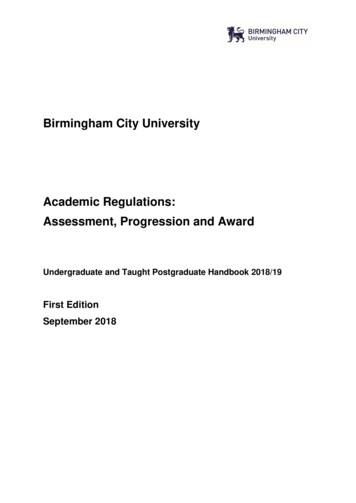
Transcription
Birmingham City UniversityAcademic Regulations:Assessment, Progression and AwardUndergraduate and Taught Postgraduate Handbook 2018/19First EditionSeptember 2018
This handbook is published annually by Academic Services (Quality Support Services)If you have any queries or comments, please contact:Richard MonkAssistant Director of Academic Services (Quality Support Services)Tel 0121 331 5749Email: richard.monk@bcu.ac.ukFirst Edition (Approved: 14 September 2018)
CONTENTSACADEMIC REGULATIONSClick on the individual section headings below to proceed directly to the relevant sectionPage(iii)(iv)(vii)IntroductionSummary of PLES GOVERNING THE UNIVERSITY ACADEMICREGULATIONSPrinciples governing the University academic regulations1DEFINITIONS AND EXPLANATIONS:Course and Module, Assessment Cycles, Resits, Exemption fromResits, Repeat Stage and Permanent and Temporary WithdrawalPreambleScope of RegulationsDefinition of course and moduleCommencement of studiesVariation of studyAn initial assessment cycle and a repeat assessment cycle of the stageResit opportunitiesModules exceptionally exempted from providing a resit opportunityRepeat stages of study including the automatic right to repeat a failedstage 1Permanent and temporary withdrawal requested by a student(i) Permanent Withdrawal (PWD)(ii) Temporary Withdrawal (TWD)3RETRIEVING CREDIT:Trailed Credit, Compensation, Condoned Credit and TemporaryWithdrawal with Second ResitsCriteria for retrieving creditDiscretionary trailed creditNon-discretionary compensated creditDiscretionary condoned creditDiscretionary temporary withdrawal with a second resit9PROGRESSION AND AWARD:Award of Credit, Rounding of Marks, Progression and Award Criteria,Application of Mechanisms to Retrieve Credit, Consideration ofCandidatesThe award of creditRounding of marksProgression and award criteriaApplication of mechanisms to retrieve credit for progression or award atthe undergraduate and postgraduate Progression and Award Board (PAB)Undergraduate candidatesPostgraduate candidatesConsideration of candidates on a 4 stage Bachelor’s course includingstudy abroad/placementAcademic 6First Edition (September 2018)
4.8Criteria for progression and transfer to a 4 stage integrated Master’sdegreeCriteria for progression from the Foundation Year into stage 1 and theBirmingham City University Foundation Certificate18205.15.25.35.45.55.65.75.8AWARD REQUIREMENTS AND CLASSIFICATION:Award Requirements, Classification Divisions, Borderlines, SpecificLearning Disability and Regulatory ExceptionsCredit and award requirementsCredit volume and weighting for classification of undergraduate awardsCredit volume and weighting for postgraduate awardsAegrotat awardsClassification divisionsBorderline for degree classificationSpecific learning disability (SpLD) and late diagnosis of mental healthRegulatory exceptions66.1LATE SUBMISSIONPenalties for late submission252577.1EXTENUATING CIRCUMSTANCESProgression and Award Board (PAB) consideration of an exceptionalcircumstances claimOther circumstances where a sit may be determined outside the PAB2626MODULE ASSESSMENT BOARDS & PROGRESSION AND AWARDBOARDS:Structure, Terms of Reference, Composition and Quoracy of ModuleAssessment Boards (MABs) and Progression and Award Boards(PABs) and Duties of OfficersStructure and roles of examination boardsModule Assessment Boards (MABs)School Progression and Award Boards (PABs)External Examiner involvement and attendance at the PABDealing with students following exam boardsDuties of Examination Board Officers (Chair and Deputy Chair), ModuleConvenor and External 3242426282829303131APPENDICES: DEROGATION FROM STANDARD UNIVERSITY REGULATIONSAPPROVED BY ACADEMIC BOARD AND RELATED APPENDICESAPPENDICESAUniversity Academic FrameworkBDerogations from Standard University RegulationsCProgression and award flowchartsDRepeat Year Standard Learning AgreementESchool Student Progress Committee – Terms of Reference andConstitutionAcademic Regulations[ii]3641424448First Edition (September 2018)
IntroductionAcademic Regulations – First Edition (September 2018)(i)These Academic Regulations were introduced in September 2018 and apply to all taughtcourses at all levels leading to a Birmingham City University award, including coursesoffered in collaboration with approved partner institutions (except where otherwiseagreed) and BTEC Higher National awards conferred under Birmingham CityUniversity’s Licence Agreement with Pearson Education Ltd (Edexcel). They also apply,where appropriate, to students registered for taught modules for which credit is awardedon successful completion but which by themselves do not lead to a Birmingham CityUniversity award.(ii)Separate Regulations apply to Birmingham City University’s research degrees includingprofessional doctorates, higher doctorates and honorary degrees.(iii)Birmingham City University’s Academic Regulations are the definitive statement over allother Birmingham City University documents of the regulatory framework for coursesleading to a Birmingham City University taught award at all levels. They are legallybinding. In the unlikely event of any discrepancy between the Academic Regulationsand any other Birmingham City University publication, the Academic Regulations takeprecedence and are applied in all cases. They have been approved by the University’sAcademic Board and will be reviewed annually by the Academic Board.(iv)All taught courses leading to a Birmingham City University award are required to adhereto these Academic Regulations, unless the Academic Board has agreed otherwise.(v)Under the provisions of Birmingham City University’s Articles of Government, theAcademic Board is responsible for Birmingham City University’s academic standards.Throughout these Academic Regulations, all references to “Birmingham City University”in the context of setting or maintaining academic standards should be understood tosignify the Academic Board in the exercise of its responsibility for these matters.(vi)The Academic Board has established an Academic Regulations and Policy Committeewhich is responsible for the day-to-day operation of the Academic Regulations and ruleson issues of interpretation and/or ambiguity that may arise from time to time and betweenmeetings of the Academic Board. Responsibility for approval of any amendments and/oradditions to the Principles governing the Academic Regulations (as set out in Section 1below) and the University’s Academic Framework (see Appendix A) rests with theAcademic Board. Responsibility for the day-to-day management and operation of theAcademic Regulations, including approval of any amendments to the regulations, restswith the Academic Regulations and Policy Committee. The Committee is alsoresponsible for reporting details of any amendments to the Academic Regulations to theAcademic Board in June of each year.(vii) Birmingham City University’s Academic Regulations take full account of the UK QualityCode developed by the QAA to define and maintain academic standards in UK highereducation.Academic Regulations[iii]First Edition (September 2018)
Summary of regulationsThe 2018/19 academic regulations will be applied to all students taking assessment with ‘nodetriment’ to students who progressed under the 2017/18 regulations. ‘No detriment’ meansthat the regulations (either 2018/19 or 2017/18) which will be applied to students whoprogressed in 2017/18 will be the regulations that result in the best outcome for the individualstudent.Either the 2018/19 or 2017/18 regulations will be applied in full and not a hybrid of both setsof regulations, with the exception of degree classification where students progressing in2017/18 will retain the current method of degree classification as this may have influencedtheir engagement with contributing modules.The table below sets out the principal regulations included in the Academic Regulations.RegulationCredit requirement forprogression andaward(undergraduate)(Regulation 4.3)Brief summaryFor progression, 40% uncapped stagemean plus 120 credits (which may includea maximum of 40 credits viacompensation or 20 credits viacompensation and 20 credits condonedwhere criteria met).The capped stage mean will always beapplied for award classification.RationaleEnsures stage meanachieved across each stageof study. Ensures all creditsecured with a maximum of20 credits condoned perstage.Credit requirement forprogression andaward (integratedMaster’s)(Regulation 4.3)For progression, 40% uncapped stagemean for all UG stages and 50% cappedstage mean for stage 4 (Level 7) plus 120credits (which may include a maximum of40 credits via compensation or 20 creditsvia compensation and 20 creditscondoned where criteria met).The capped stage mean will always beapplied for award classification.Ensures stage meanachieved across each stageof study. Ensures all creditsecured with a maximum of20 credits condoned perstage.Degree classificationfor Honours(Regulation 5.2)All undergraduate degrees are classifiedusing 120 credit stage mean from stage 2(Level 5) and 120 credit stage 3 (Level 6)weighted 40:60.This is designed to improvestudent engagement with allmodules and better reflectachievement.Degree classificationfor top-up Honours(Regulation 5.2)Degree classificationfor integrated Master’s(Regulation 5.2)Compensation(Regulation 3.3)Stage mean for 120 credits stage 3 (Level6) only. Exit awards not permitted.This ensures consistency bynot using imported marks.120 credit stage mean from stages 2, 3and 4 weighted 20:30:50.Retains exit velocity as levelsincrease in complexity.Automatic compensation up to amaximum volume of 40 credits per stagewill be awarded where criteria met (3539% module mark and 40% stage mean)at all UG stages, increasing to 45-49%module mark and 50% stage mean atLevel 7, except where a PSRB does notpermit or places limits on compensation.Applied automatically toensure equity of application.Ensures stage meanachieved across stage.Academic Regulations[iv]First Edition (September 2018)
Trailed credit(Regulation 3.2)Condonement(Regulation 3.4)Cycle of assessment(Regulation 2.6)Repeat stage(Regulation 2.9)Resit marks(Regulation 2.7)Accepted extenuatingcircumstances(Regulation 7.1)Academic RegulationsA student may be permitted to trail up to20 credits in the following circumstances:1. To allow them to complete anassessment cycle including sits/resits.2. Where a course (normally due to PSRBrequirements) does not allowcompensated or condoned credit, trailedcredit may be permitted with up to amaximum of 20 credits to be trailed intothe next stage, where criteria met (40%uncapped stage mean).PAB may allow a maximum of 20 creditsto be condoned at each stage of theaward, where criteria met (course learningoutcomes achieved through successfulcompletion of other modules, non-zero failand 40% stage mean).An assessment cycle includes one firstattempt, an in-year retrieval resit (ifavailable) and one resit attempt in theresit period (A3). See also Regulation2.7.4 – Timing of Resit Opportunities and‘Within-Year resits’. Where modulesinclude an in-year resit they will alsoprovide a further resit attempt in the resitperiod (A3).Entitlement for repeat of stage 1 (level 4)and discretionary thereafter for any otherstage.Where a resit is taken, the mark achievedwill stand, capped at the module passmark for the purpose of awardclassification. Where it is not taken, theoriginal mark will stand.In cases where assessment is passedand EC claim accepted, an optional sit ofthe assessment (or component coveredby EC) will be provided by the PAB only ifthere is evidence of impact on theassessment; normally this is automaticallyset at 2% or more below the stage meanfor the individual student.May be used wherecompensated or condonedcredit is not permitted andwhere PAB anticipatessuccess at the nextopportunity.Allows for single modulefailure at each stage of thedegree provided stage meanof 40% is met and no morethan 20 credits have alsobeen compensated for thatstage.Resit period is set in the A3(July/August) assessmentperiod. In-year retrievalfacilitates a furtheropportunity, in particular forPSRB courses wherecompensation and/orcondonement is notpermitted.Equity for all students instage 1 (Level 4). Academicjudgement for other stages.Ensures student engagementand does not confer unfairadvantage over students whopassed the original sit.A student may appeal to takea resit if they have passedwith accepted EC if they candemonstrate a negativeimpact on the passedassessment. However, if alower mark is achieved at thesit, the lower mark will stand.Students who have missed or failed anassessment (or component) will be givena sit opportunity for all assessments withaccepted evidenced EC.The opportunity of a sit for anuncapped mark allows allstudents to demonstrate theirachievement and does notconfer an unfair advantageas a result of a sit. Suchstudents will be entitled to aresit at the next assessmentopportunity which includestrailing up to 20 credits.No marks will be set aside.Equity for all students isachieved by not using EC asa mechanism to set asidemarks.[v]First Edition (September 2018)
Regulatory exceptions(Regulation 5.8)Exceptionally, the PAB may take the viewthat it wishes to set aside the academicregulations in order to deal with anindividual student or cohort in line with theassessment principles (see Section 1).In such cases the PAB must make a casefor regulatory exception by clearly statingthe issue and the course of actionrecommended to resolve the issue. ThePAB must obtain permission from theDeputy Vice Chancellor (Academic) toinvoke this exception.Academic Regulations[vi]DVC (Academic) may acceptor reject the request in orderto maintain the academicstandards of BCU awards.All such exceptions will berecorded and reportedannually to Academic Board.The action remains a PABdecision and therefore thestudent retains the right toappeal against the PABdecision within the appealrules.First Edition (September 2018)
GlossaryGlossary of key terms used in this handbook and their meaning:TermAcademic CreditAssessment periodAward*Capped marks / tionContributory assessmentCore moduleCourseCoursework assessmentCycle of assessmentDerogationJoint Major*Level*Academic RegulationsMeaning in this handbookAcademic credit may be awarded for the successful completionof a credit rated module or by the University compensating amodule, where criteria anuary, May/June and July/August.Theseassessment periods are referred to as A1, A2 and A3respectively. Assessments scheduled during these periods arenormally examinations and more extensive courseworksubmissions.The academic award for the successful completion of a course(e.g. BA, BSc, LLB, Certificate, Diploma).‘Capping’ is where the mark for a module is restricted to thepass mark (40% for modules at Levels 3-6 and 50% formodules at Level 7). This applies to all resits (see below).The process that occurs at the end of studies for an honoursdegree or integrated masters, where Progression and AwardBoards (PABs) categorise students’ overall results into classesof degree.The practice of permitting students to fail one or more moduleswithin a degree course but still qualify for the award of a degreewhere the student has been judged to have achieved thecourse learning outcomes through successful completion ofother modules.The practice of permitting marginal failure of one or moremodules on the basis of good overall academic performanceand in accordance with specified criteria.The arithmetical process of producing a final mark based onweightings assigned to each element in an assessment.Assessment that contributes to the mark for a module.A module that must be taken.A course is an approved ‘course of study’ comprising a numberof credit bearing modules which leads to an academic award ofthe University. Students are registered on an individual course.An assessment that is submitted for marking which does notrequire the student to be present during the assessment.Comprises one first attempt, an in-year retrieval resit (ifavailable) and one resit attempt at module assessment in astage of study.Deviation from the standard regulations, usually due to PSRBrequirements for external accredited degrees.For example BA English and History (where English and Historyare both major subjects, contributing equally to the overalldegree).Level refers to a series of sequential stages of increasing levelsof difficulty aligned to the national Framework for HigherEducation Qualifications (FHEQ) and against which modulesand courses can be aligned. These levels are usually alignedwith the following stages of study:[vii]First Edition (September 2018)
Foundation stage 0: Level 3UG Stage 1: Level 4UG Stage 2: Level 5UG Stage 3: Level 6PG Stage: Level 7 (Stage 4 of integrated Master’s)MABMode of AssessmentModeration (Internal andExternal)ModuleModule assessmentNon-contributory workPABProgrammeProgressionRecognition of PriorLearning (RPL)RepeatAcademic RegulationsAt each stage, a student may take up to a maximum of 20credits at the level below but not above at any stage.The Module Assessment Board (MAB) considers and assuresmarks achieved on a module by a cohort of students, who maybe registered on different courses.The description of an assessment type (e.g. examination,coursework or in-person assessment).Internal moderation is a process that is required by theUniversity to confirm that the marking process has beenconducted consistently, with no problems identified (forexample marks added up incorrectly within a paper orinconsistencies in marking). It is undertaken independently ofthe marking team following the completion of the markingprocess prior to external moderation by the External Examiner.The moderator cannot change any marks but can request aremarking of all or specific sections of the assessment.A unit of study which usually leads to the award of credit.The work required in order to obtain a mark for a module andto demonstrate achievement of the module learning outcomes.Module assessment may take place during the semester or inthe mid-year or end of year assessment period.‘Non-contributory work’ is a term used to describe exerciseswhich are required to be undertaken as part of the learningprocess, but for which the mark does not contribute to the markreceived for the module. It is normally marked on a pass / failbasis.The Progression and Award Board (PAB) reviews the marksarray for students on individual courses as a cohort andconsiders candidates for progression to the next stage and foraward.A programme may include several courses which overlap andhave distinct pathways leading to different course titles.Students will be registered at individual course level.Undergraduate progression from one stage to another isachieved by meeting the progression requirements set outwithin the regulations. Master’s students are considered to bein a single stage of study.The process through which students can be admitted withcredit to a particular undergraduate or postgraduate coursethrough the formal recognition of prior certificated learning(RPCL) or prior experiential learning (RPEL). Studentsseeking admission with prior learning based on RPCL orRPEL are not permitted to register for a course leading to aUniversity award until such admission has been approved inwriting. RPL only takes place prior to entry and retrospectiveapplications will not be considered.A repeat is an opportunity to retake the complete cycle ofassessment (sit and resit) for progression/award orexceptionally a full semester. It will entail repeating the[viii]First Edition (September 2018)
ResitRounding of marksSitStageTrailed creditlearning as well as the assessment, therefore fees will apply.Marks for repeat modules are not capped.A resit is an opportunity to retrieve an initial fail withoutrepeating a module. Resit marks are capped at 40% onmodules at levels 3-6 and at 50% on modules at level 7.Module, stage and grand mean marks will be a whole numberrounded up ( 0.45) or down ( 0.44).A Sit is an opportunity to take an assessment ‘as if for the firsttime’. A Sit may be offered by a PAB due to acceptedextenuating circumstances. ‘Sit’ marks are not capped at thepass threshold and will be weighted in accordance with theassessment weighting for the assessment mode following theaccepted extenuating circumstances claim.The period of an award between two progression points (seealso ‘Level’ above)The practice of permitting undergraduate students to progressto the next stage of study while trailing up to a maximum of 20credits, in accordance with specified criteria and whereapproved by the PAB. Credit can be trailed at all stages ofundergraduate courses.* Please see the University’s Academic Framework for further details (Appendix A).Academic Regulations[ix]First Edition (September 2018)
Section 1: Principles Governing the University Academic Regulations1.1Principles governing the University academic regulationsThe principles governing the Birmingham City University academic regulations are as follows:Principle 1: All students are given a fair and equal opportunity to demonstrate academicachievement.Principle 2: The adoption of UK sector norms as specified in the QAA HE national frameworkfor higher education qualifications, including the requirement that students achieve the creditrequirement as set out in the University’s Academic Framework.Principle 3: The requirement of 120 credits for progression on undergraduate awards, subjectto specific rules on compensation, condonement and trailing of credit. Progression does notnormally apply to postgraduate awards which are considered as a single stage (with theexception of taught postgraduate awards which are part of a designed professional doctoratecourse of study).Principle 4: The provision of opportunities for students to develop an understanding of, andthe necessary skills to demonstrate, good academic practice. The University has processeswhich operate to prevent, identify, investigate and respond to unacceptable practice relatingto assessment including plagiarism, cheating, collusion and impersonation. Feedback onassessment will be timely, constructive and developmental.Principle 5: The University’s Academic Framework sets out the volume and level of creditrequired to achieve each specific award of the University. This includes the principle thatProgression and Award Boards (PABs) are permitted to condone failed module(s) up to amaximum of 20 credits at each stage based on the academic judgement of the Progressionand Award Board that the learning outcomes for the award have been met.Principle 6: A 0-100 marking scale for all taught courses with pass thresholds at 40% onmodules at levels 3-6 (Stages 0, 1, 2 and 3) and 50% on modules at level 7 (including stage4 of integrated Master’s courses), and standard thresholds across the institution forclassification purposes at both undergraduate and postgraduate level.Principle 7: The application of rules on compensation, condonement and trailed credit applyonly to students who achieve a stage mean of 40% for undergraduate courses at stages 0 to3 and 50% for postgraduate taught courses, and stage 4 of an integrated Master’s degree, forprogression and/or award. This principle assures the standard for all Birmingham CityUniversity awards.Principle 8: Module resits are permitted for all stages at undergraduate level, including forhonours. Resits at postgraduate level for taught modules are also permitted. Where credit hasbeen awarded by a PAB no student shall be permitted to resit to improve the mark.Principle 9: Where a student has failed a module or where the module has been condonedor automatic compensation has been applied (35-39% on a module at level 3 to 6 and 45-49%on a module at level 7 respectively), and the student takes a resit opportunity, the uncappedresit mark will normally be used for progression purposes but the capped resit mark will beused for transfer and award classification. The mark achieved at the resit will stand, where ithas been taken, even where it is lower than at the original attempt. Where the resit has notbeen taken, the original mark will stand.Academic Regulations1First Edition (September 2018)
Principle 10: A failing student in stage 1 only is entitled to an automatic offer of a repeat yearproviding that they agree to abide by the additional conditions set down in the UniversityRepeat Year Learning Agreement.Principle 11: A repeat year for a Foundation Year course, Stage 2 and beyond forundergraduate courses, and Master’s courses, is permitted at the discretion of the Progressionand Award Board. Such students will also be subject to an individual Repeat Year LearningAgreementPrinciple 12: Individual extenuating circumstances is the University’s description ofconditions which are sudden and unforeseen and temporarily prevent a student fromundertaking assessment, or significantly impact on student performance in assessment ingeneral, including late submission; as such the measure of severity is not about impact on thestudent but the impact on the assessment at the level of the module.Principle 13: A student with accepted extenuating circumstances who does not attempt orfails an assessment (or component) will be given a sit for an uncapped mark. In cases whereassessment is passed and EC accepted, an optional sit of the assessment (or componentaffected) will be provided by the PAB only if there is evidence of impact on the assessment;normally this is automatically set at 2% or more below the stage mean. Where a lower markis obtained at this new sit, this mark shall be recorded. If the offered ‘sit’ is not taken theoriginal mark shall remain on the student record. This principle applies in order to ensureequality of opportunity for all students. Acceptance of extenuating circumstances shall not beused to set aside marks or reclassify an award in any circumstances.Principle 14: Ongoing or longer-term conditions or circumstances are not in themselvesindividual extenuating circumstances as they are not sudden, unforeseen and temporary.Students will be referred to Student Affairs for consideration of any reasonable adjustmentswhich can be made. Ongoing or longer-term conditions may give rise to valid extenuatingcircumstances impacting on assessment only if they are first confirmed/diagnosed or becomesuddenly, unexpectedly and markedly worse at a particular assessment point. In all suchcases, the extenuating circumstances process may be followed. Claims for circumstances notimpacting on an ongoing or longer-term condition may also be made via the extenuatingcircumstances process, but no claim of extenuating circumstances can be made citing lack offitness to study. All claims must be specifically linked to a module assessment and must besudden, unforeseen and temporarily impact on assessment.Academic Regulations2First Edition (September 2018)
Section 2: Definitions and ExplanationsCourse and Module, Assessment Cycles, Resits, Exemption from Resit, RepeatStage and Permanent and Temporary Withdrawal2.1Preamble2.1.1 The University has autonomy to award its own degrees which requires acomprehensive, consistent and coherent framework of regulations. The academicregulations and associated procedures are intended to: ensure the academic standards and integrity of Birmingham City Universityawardsensure that all decisions regarding assessment, progression and award aretransparent, consistent and equitableprotect individual students from discrepancies in treatment between Schoolsprotect individual staff members from allegations of bias.2.1.2 The regulations are underpinned by the governing principles set out in Section 1.1.The regulations have been developed with reference to the UK Quality Code for HigherEducation and the Framework for Higher Education Qualifications of UK DegreeAwarding Bodies (FHEQ).2.2Scope of regulations2.2.1 These regulations apply to all taught undergraduate (including integrated masters) andpostgraduate awards. Derogation from these regulations may be permitted by theUniversity’s Academic Board on recommendation from the Academic Regulationsand Policy Committee to meet the accreditation requirements of Professional,Statutory and/or Regulatory Bodies (PSRBs) or to enable subject norms within adiscipline where University requirements may be considered too strict, such as numberof attempts permitted in an academic cycle. Any such derogations will be specified inAppendix B to this Handbook.2.3Definition of course and module2.3.1 An approved University taught course may be defined by stages of study, and iscomprised of a number of modules, weighted by credit at a designated stage, whichprovide a coherent academic learning experience, with an explicit set of learningoutcomes that leads to an award of the University. A taught master’s course is definedby a single stage of postgraduate study irrespective of the duration of study (full-timeor part-time). FHEQ level 3 (foundation year, stage zero), FHEQ levels 4, 5 and 6(undergraduate full time stages 1 to 3) and FHEQ level 7 (Master’s and stage 4 ofintegrated Master’s courses), are set out in the University’s Academic Framework (seeAppendix A) which specifies the volume of credit needed to qualify for a particularaward.2.3.2 The University’s courses are comprised of credit bearing modules which are definedas “a self-contained, formally structured and credit-bearing unit of study, with acoherent and explicit set of learning outcomes and assessment criteria”. Modules musthave appropriate learning outcomes set at the relevant FHEQ level
(iv) All taught courses leading to a Birmingham City University award are required to adhere to these Academic Regulations, unless the Academic Board has agreed otherwise. (v) Under the provisions of Birmingham City University's Articles of Government, the Academic Board is responsible for Birmingham City University's academic standards.

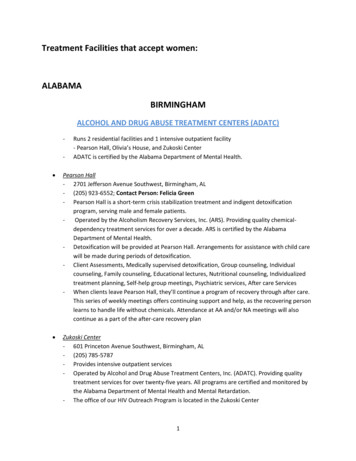
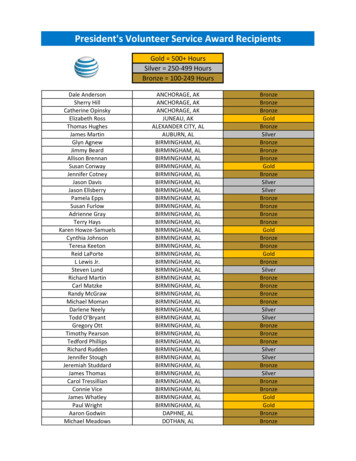
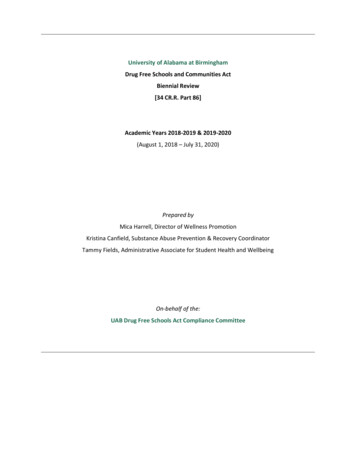
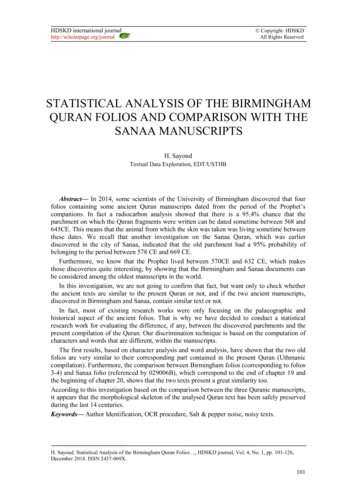

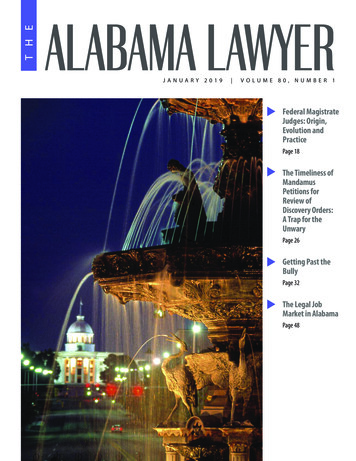

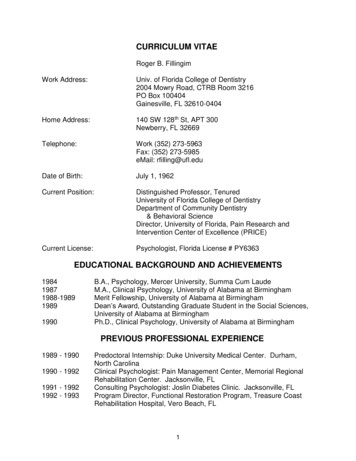

![Letter from Birmingham Jail (1963) [Abridged]](/img/2/1963-mlk-letter-abridged.jpg)